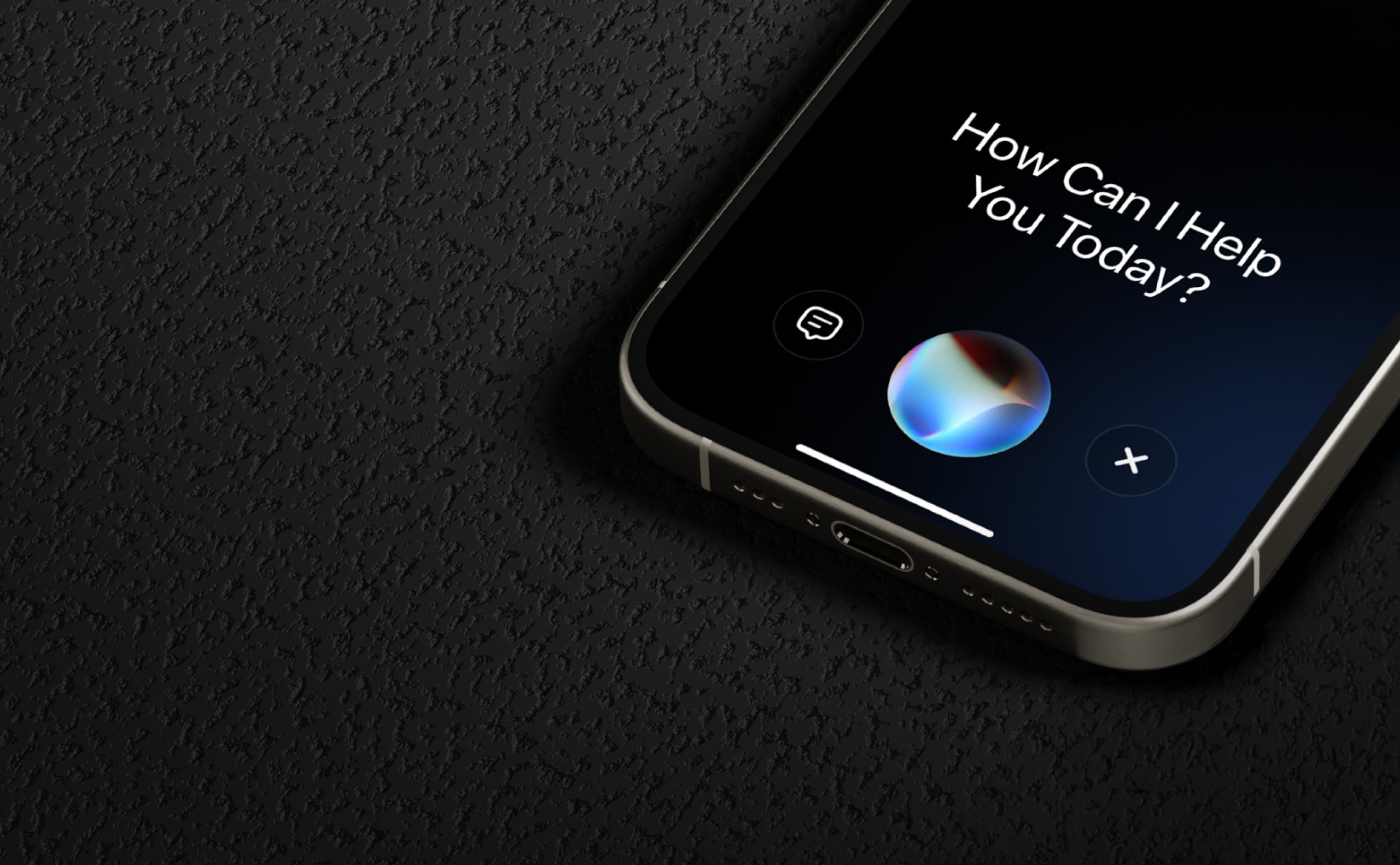Android or iOS: Essential things to look for while choosing a platform for mobile app development
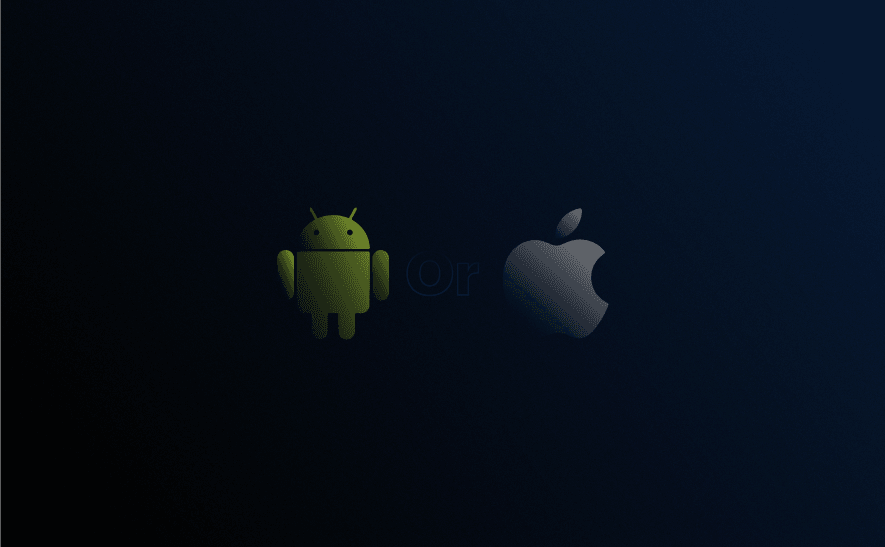
Motorola DynaTAC 800x was the world’s first cell phone that was launched in the year 1983. Even though it was large in size, it was considered as the most successful portable phone at that time. World’s first smartphone made its debut in the year 1992. IBM Simon is regarded as the world’s first smartphone. Over time, cell phones underwent lots of significant changes. At present we make use of our mobile phones to do almost everything that was once done using a computer. Whether it be browsing the internet or watching videos, movies, today’s smartphones can help you with all these things. What made the present mobile phones such smart?
Technology has a habit of changing itself every fortnight. One such example is the evolution of mobile apps. According to the World Economic Forum, the R&D department of IBM Simon, the world’s first smartphone came up with a handful of built-in apps in 1994. Today’s world, almost all the services ranging from e-commerce to media OTT are available at your fingertips. Mobile applications are to be thanked for making it happen. Convenience, speed and personalised experience offered by the mobile applications are factors that make people spend more time using mobile apps. Based on a study conducted by Flurry, people spend over 5 hours a day on mobile devices. 92% of that time is spent on mobile apps, and only 8% is spent on browsing. In today’s digital world for every business to be successful, they need to have their mobile applications. It would help create a much more significant impact on people. It is equally important to select the right platform for these applications.
Ten years ago, there were more than five mobile operating systems — Microsoft, Symbian, RIM, Android, iOS, and several other small competitors. Eventually, almost everyone lost the race, and only two major operating systems are left right now- Android and iOS. There are several factors to look for before deciding the platform for which you should develop your app.
1. Global Market Share and Target Audience
Android devices have more global market share when compared with others. As of 2019, almost 85% of mobile devices ran Android while iOS is around 14.7%, according to CNet. If you want your app to have a greater worldwide reach or if you are targeting a broad global audience, it would be wise to stick with Android since 85% of the world’s population uses Android devices. Choose the operating system that is more popular in your key markets.
2. Platform Fragmentation
According to Forbes, 25% of the mobile devices running on Android are using an outdated version of the OS. More than half of all Android devices run on an OS released before 2015. On the other hand, almost 95% of the active iOS devices currently run some version of iOS 11, according to Statista. As far as mobile app development is considered, it is easier to develop apps for iOS than compared with Android. Android developers need to make sure that an application developed should be supported in a more number of versions to have a greater reach on the audience. An app developed for an iOS platform would run on more devices since 95% of active device run iOS 11. Time spent in mobile app development for iOS would be less due to less fragmentation of OS versions.
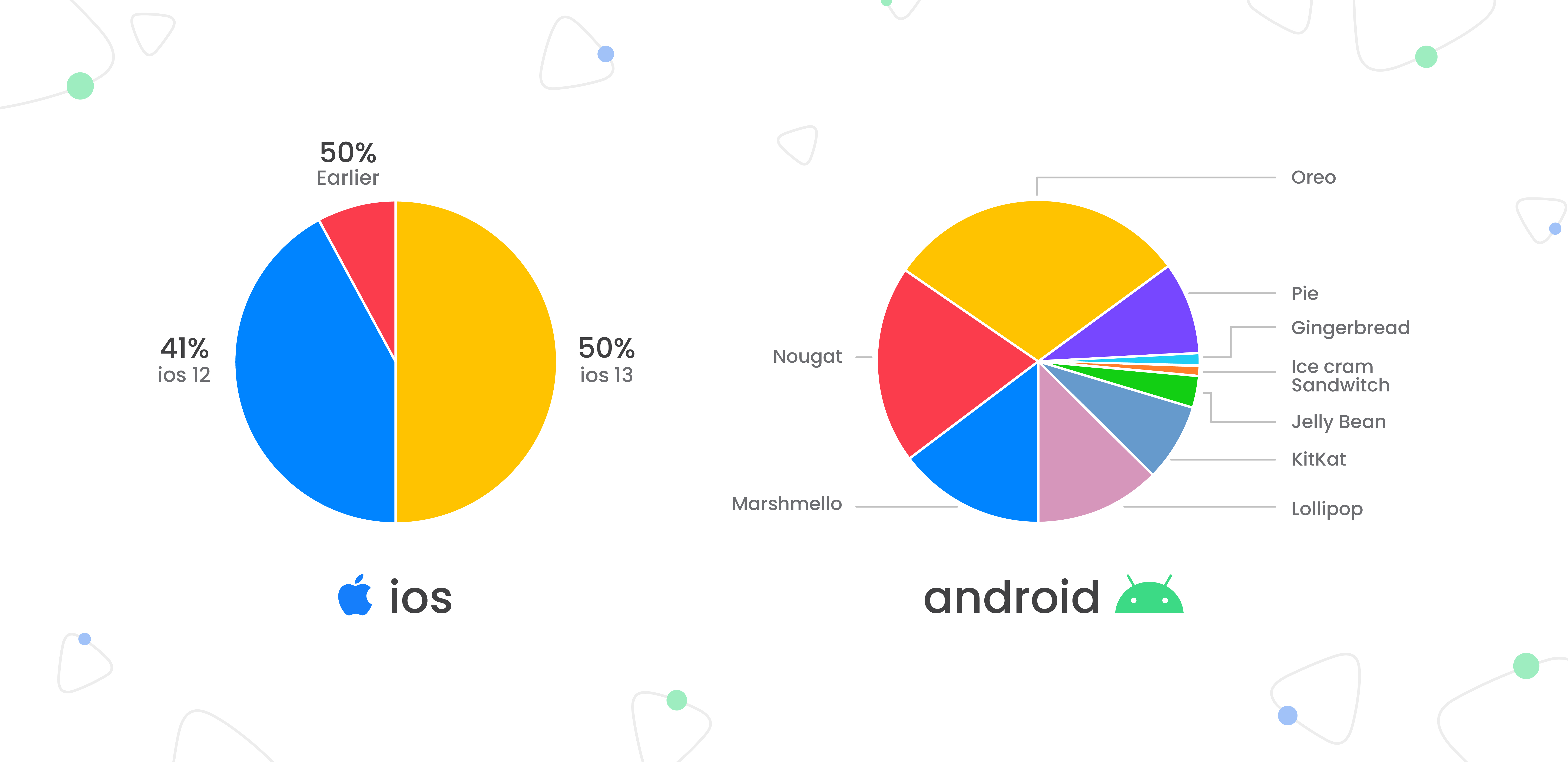
3. Consumer Spending
According to ValueWalk, even though Android has a global market share of 85%, Apple’s App Store generated more revenue than Google’s Play Store. The revenue generated by the App Store is double to the revenue generated by the Play Store, according to TechCrunch. Based on a report by Moz, Android users spend $11.54 per transaction while iPhone users, on the other hand, spend $32.94 per transaction. If you want to have a high return on investment, then the iOS platform would be the best bet. Digital marketers can make use of this trend and focus more on iOS users to generate more revenue for your application. If your primary motive is to generate revenue, it would be good to remember the consumer spending factor before deciding the platform for your mobile app development. The graph below shows the relation between spending on App Store and Play store by consumers
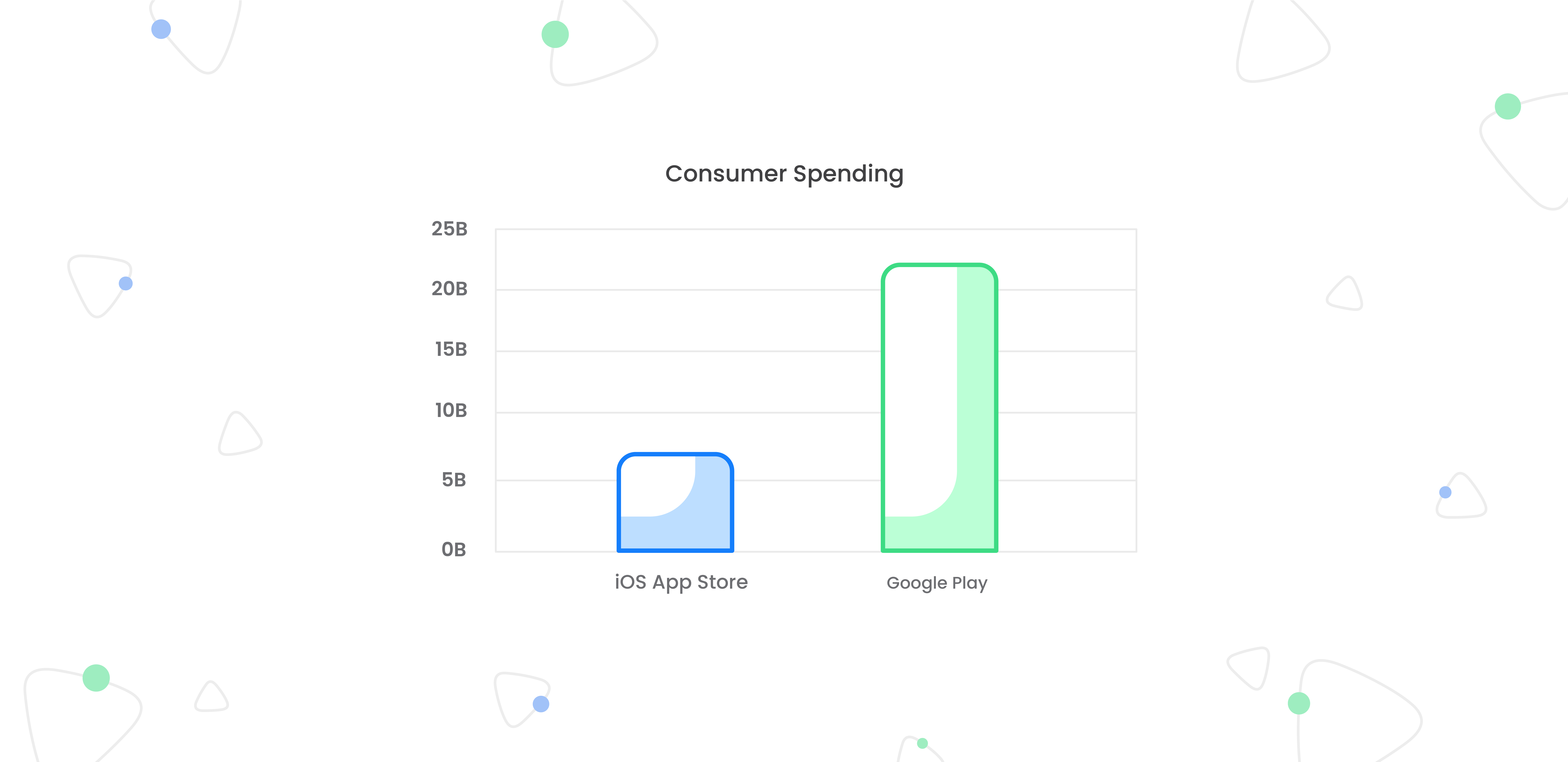
4. Development Expenses
Android apps are written in java, while iOS apps are written in Swift, Apple’s official programming language. According to Infinum, on average, we write 40% more code on Android than on iOS. Android is an open-source platform while Apple, with its closed ecosystem, ensures that you only have to develop apps for a few standardized devices and OS. As a result, the time taken for mobile app development for iOS would be less than Android. More hours spent on mobile app development means more would be the expense.
5. Analytics Tools Implementation
There are more than millions of apps right now at both Play Store as well as the App Store. It is essential to keep track of your app performance by making use of some tracking tools. Google Analytics(GA), Firebase, Segment, Appsee, Fabric are some examples of tracking tools that provide you with useful information regarding the app performance. Both Android, as well as iOS, allows easy integration of these tracking tools.
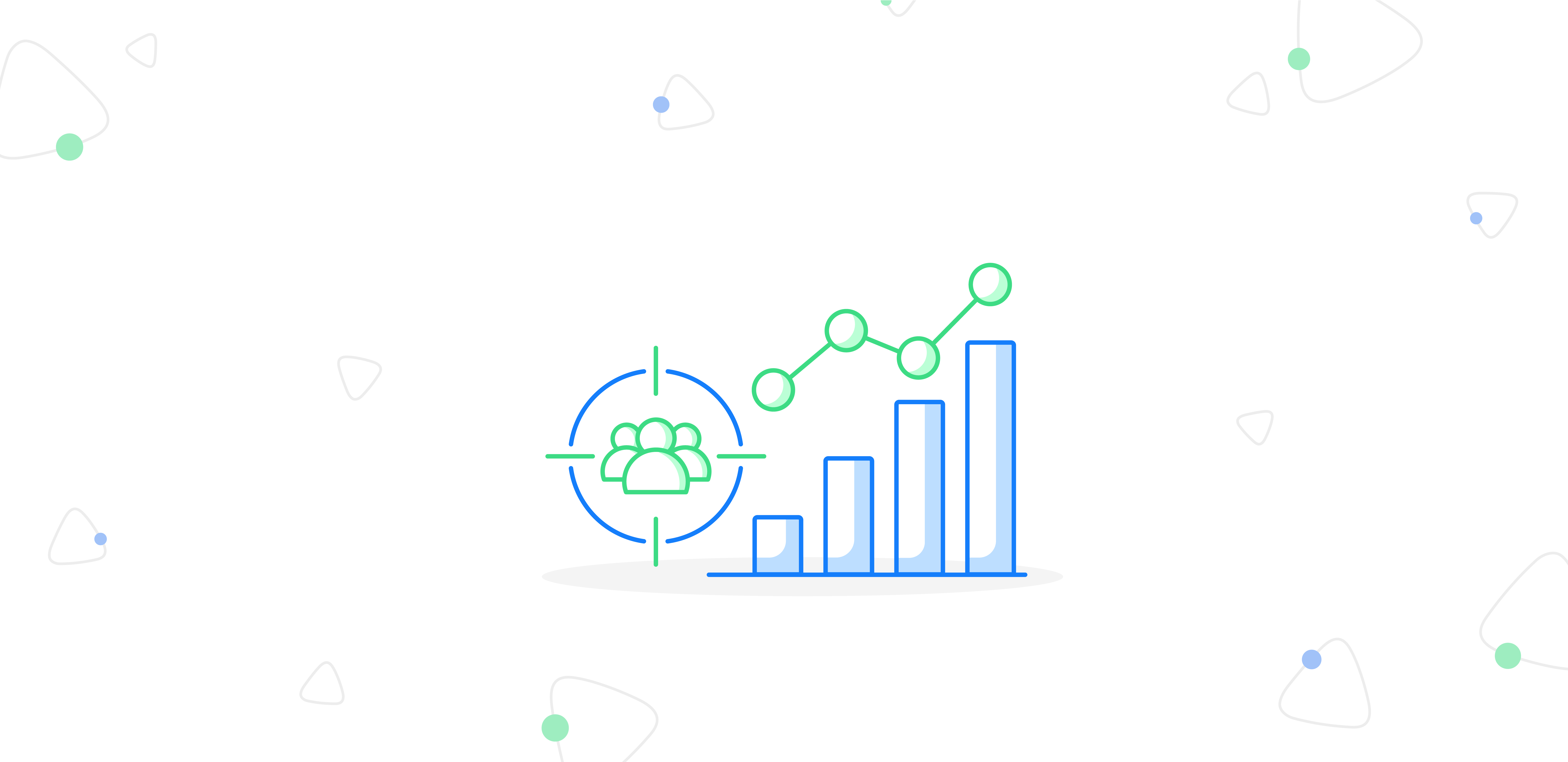
6. App Store Submission
The time required for app store submission can play a crucial factor if you want to get the app live as early as possible. Google Play Store uses automated testing methodologies to get your app tested before making it live. While on the other hand, Apple uses manual quality testing with real people performing step by step app reviews. Since Google uses automated testing chances of missing out some minor issues exist. But Apple is very much scrupulous in their reviews. App Store review guidelines are more strict as compared with Play Store guidelines. The number of apps that get rejected in the Play Store is very less than compared with the App Store. On average, your app would go live in 2-3 days after submission in Play Store.
To know more about App store review guidelines please visit, https://developer.apple.com/app-store/review/guidelines/
To know more about Play Store guidelines please visit, https://play.google.com/about/developer-content-policy/
With access to internet facilities getting cheaper, the number of users starting to use mobile phones is also increasing day by day. It is essential to have an idea about which platform you should be developing your app so that it can reach the desired audience. Choosing a platform depends on the purpose for which you are developing the app. The right platform for your app would help you achieve great success for your business.
At Webandcrafts, we offer expert iOS application development services and Android application development services to create seamless, user-friendly mobile apps tailored to your business needs. As a trusted iOS app development agency and Android development company, we ensure high-quality solutions that drive results. Reach out to us today to bring your app ideas to life!
Discover Digital Transformation
Please feel free to share your thoughts and we can discuss it over a cup of tea.




